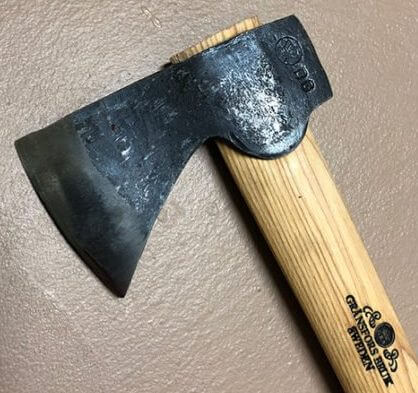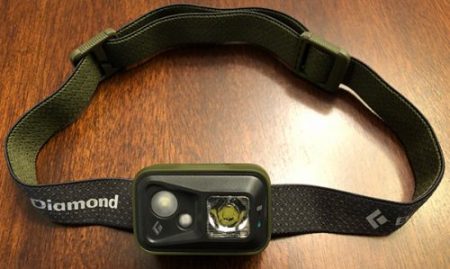Primitive camping used to be America’s pastime, and it has recently seen a resurgence with more of an inclination to get away, leave the car behind, and head into the backwoods. If this appeals to you, either as leisure or practice, pack your bag and let’s go.
But first, a few words on primitive camping essentials to make your time safe and enjoyable. Let’s get started!
Primitive camping is going out into the wilderness with little to no gear and relying on your skills and abilities to get you through the trip. The following are the essentials for primitive camping:
- Knife/Saw/Axe
- Camping Shelter
- Fire Making
- Water Purification
- Rope/Duct Tape
- Flashlights
- Map and Compass
- First Aid Kit
- Conveyance
- Primitive Skills
Everyone seems to have their theory on what primitive camping essentials are, but a lot of what a person chooses will be based on their skills and comfort level. For this list, I think it’s better to deal with tasks instead of tools in most cases. One tool can do many tasks, so understanding the task will allow us to pick the most versatile tool.
Primitive Camping
Primitive camping is a great way to bridge the gap between our modern world and our ancestors’ lifestyle. Most of us are severely disconnected from nature, but it doesn’t have to be that way!
Let’s look at what you’ll need to return to wild living with primitive camping.

Knife/Saw/Axe
Pretty much the number on everyone’s list are the tools that make doing most tasks outdoors possible. These are your processing tools for wood, rope, animals, cloth, or anything else. The knife should be tailored to your skills and needs, whether a small pocket knife or a larger fixed blade. If you need to process larger pieces of wood, take a folding saw and a small camp axe.
Shelter
Shelter is more a system than an individual item and will need to keep you out of the elements and regulate your temperature. Tents are commonplace options, but a hammock setup or just a tarp will keep you dry during primitive camping. To regulate temperature, your first barrier is your clothing, but you should add a sleeping bag or go old school with a good wool blanket.
Fire
For overnights in the outdoors, fire may be a necessity. Not only to help keep you warm but also to boil water and cook any food you may have. Go with a simple Bic Lighter or heavy-duty weather-proof match and some ready dry tinder. Learn how to lay a fire and be efficient in lighting it.
Water
I think of water as a system like a shelter; no one item will do everything I want. Take a good quality, durable container. I prefer steel, but hard plastics like HDPE are good choices if you never put the container in a fire.
Boiling water will purify it as well as any other method, but I prefer to take a small water filter like the Sawyer Mini any time I go into the woods. Water is heavy, so I rarely carry more than my immediate needs.
Rope/Duct Tape
Taking some lashing and binding material will go a long way in making things easier for you when primitive camping. I like a small-diameter cord with decent strength.
Paracord is commonly used and cheap, but I have grown to prefer a braided line like the throw line used by Arborists. Take some duct tape; I use the Gorilla brand for bindings, bandages, repairs, and various other tasks.

Flashlights
Even if you don’t plan to be out after dark, take a light. They weigh little but can be a lifesaver if you get stuck out later than planned. I prefer handheld lights, but headlamps are convenient and work well. Keep a couple of changes of batteries in your pack, just in case.
Map & Compass
Whether you are going somewhere, you are familiar with or not, take a map and compass when primitive camping. If you are good at map reading, simply memorizing a few key directions may be enough, but for the weight, a small map won’t be an inconvenience and can be used as tinder if you need it.
Please get a good-quality compass! I have seen the cheap compasses from big box stores be off as much as 15 degrees! If you are an occasional woodsman, I recommend the Eyeskey Waterproof Multifunctional Compass, but a more full-featured compass may be better if you spend a lot of time outdoors.
First Aid Kit
I don’t know why more people don’t focus on this item. It’s often left out of a pack to ‘save weight’ or for ridiculous reasons. Put together a good first-aid kit and learn how to use it. Your life or the life of someone else may depend on it!
Look at our bug-out bag article to see what we recommend as a basic first aid kit.
Conveyance
I save this for last because every choice you make above will decide the best method for carrying your gear. We are still in a market where rucksacks are cheap and will do the job well!
Many name-brand packs will work exceptionally if you are looking for more comfort. Even a shoulder bag or haversack will be enough if your kit is small. Pick something with extra room to avoid packing headaches.
Primitive Skills
Knowledge weighs nothing and is the most important primitive camping essential! The best knife, first aid kit, or map will do you no good if you don’t know how to use them.
Books abound with great advice; I like the Mountaineers Outdoor Basics series. Look for a place that offers quality training and take some classes that will provide you with useful skills and a like-minded community.
This is another take on primitive camping that has proved valuable over many nights spent in the woods and one unfortunate slip with an axe. Feel free to add or take away as it fits your skill, knowledge, and environment. The more you know, the less you carry, so make learning your priority!
Conclusion
Primitive camping essentials are something that many of us have lost. If you need to go primitive camping, you should probably ease into it! Don’t just walk into the woods with a knife and a hatchet and expect things to go well.
Camping is a great way to get your family together and practice survival skills.

